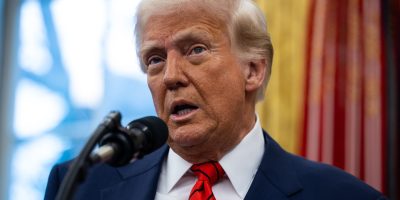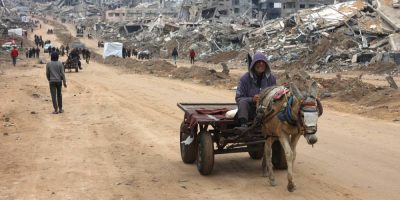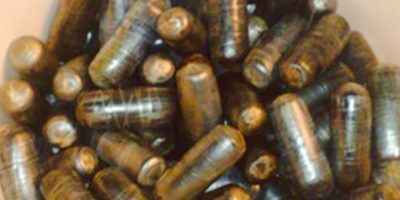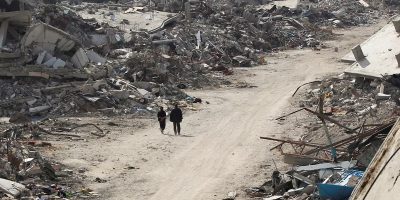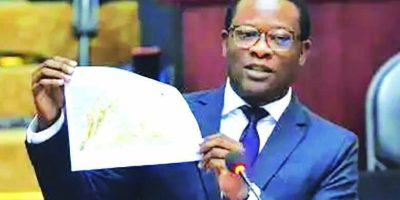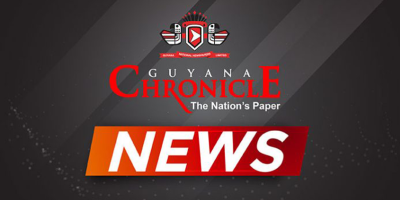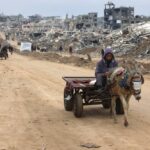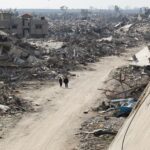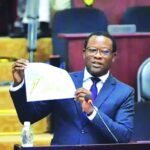Insecurity in Ethiopia’s northern Tigray region has noticeably increased in the last few days.
Many Tigrayans told DW that they are afraid that recent political tensions within the once-dominant Tigray People’s Liberation Front (TPLF) could lead to renewed violence — more than two years after one of Ethiopia’s deadliest conflicts claimed nearly 600,000 lives.
Some Tigray locals have stormed banks to withdraw money in order to purchase and hoard food and other essential goods amid soaring prices.
Many gas stations have run out of fuel. Gasoline is now being sold at exorbitant prices on the black market, with a liter costing up to 300 birr (€2.26/$2.36) — a hike of 200%.
Costs for the transport of consumer goods and public transportation have also risen dramatically.
“There’s great fear here in Tigray,” Meresa Giday, a resident of the provincial capital Mekelle, told DW correspondent Million Haileselassie.
People in Tigray are still deeply traumatized by the last war.
“That’s why panic is rising here now!” Giday said.
“After the recent developments, there is indeed great panic here. The political conflicts here are not helping us, they are putting us all at risk,” said another resident, who wanted to remain anonymous.
Smoldering power struggle
Internal divisions are not new for the TPLF, a former Marxist-Leninist liberation movement that has evolved from a guerrilla movement into a political party over the course of nearly 50 years.
What is new, however, according to observers, is the radicalism with which two rival factions are currently confronting each other.
On one side, the TPLF party leadership led by Gebremichael Debretsion, and on the other, the transitional administration, the Tigray Interim Regional Administration (TIRA), headed by its president Reda Getachew.
Although Getachew still officially considers himself part of the TPLF, he has fallen out of favor with the party leadership. Each side considers the other to be illegal and an enemy.
Now, even the existence of the TPLF as a legal party is in real danger: The congress held by Debretsion’s faction in August of last year was not recognized by the Ethiopian Electoral Commission.
The electoral body insists that the TPLF must hold another formal party congress by February 9. If they fail to do so, the TPLF will no longer be considered a legal party. This could lead to further escalation of the conflict, according to the DW correspondent.
Does the TPLF’s rising tensions serve the central government?
Ethiopian Prime Minister Abiy Ahmed is likely not displeased with the chaos within the TPLF, observers say.
After the end of the Tigray War in 2022, Abiy rejected Debretsion as president of the region’s interim government.
In a secret vote, the TPLF’s then-deputy chairman, Getachew, who had led its delegation at peace talks that took place in Pretoria, was chosen instead.
This solution suited Abiy Ahmed at the time, but it was not truly accepted within the TPLF. This conflict came to light in 2024.
In September, the TPLF expelled Getachew and 15 other party members and declared that they could no longer hold public office in the name of the party.
In response, Getachew accused them of planning a “coup” against the transitional government.
Explainer: How did Ethiopia’s Tigray war start?
Gerrit Kurtz, a researcher and conflict expert at the the German Institute for International and Security Affairs (SWP), a Berlin-based think tank, traveled to the Tigray region in the fall of 2024. He authored a widely-noted article titled “Power Struggle in Tigray.”
He told DW that there are grounds to believe that this internal Tigray conflict plays politically into the hands of PM Abiy Ahmed in Addis Ababa.
“There is an accusation that it is in the interest of the government in Addis Ababa to keep Tigray politically weak. The idea is: As long as they are fighting amongst themselves, they won’t rise up against the central government,” Kurtz said in a DW interview.
In fact, Abiy Ahmed is likely intent on keeping the TPLF, which had long dominated all of Ethiopia, small, using the classic “divide and rule” strategy, according to some observers.
Many even see Abiy as the main culprit behind the current situation, and point to the lack of implementation of the Pretoria Agreement, which ended the two years of war between Tigrayan rebels and government forces.
The federal government has failed to ensure that Amhara militias and Eritrean troops leave Tigray, thus preventing the full return of nearly 1 million displaced people, especially to Western Tigray. This poor record now plays into the hands of critics of Getachew, contributing to the split within the TPLF.
Healing after war
Risk of fresh conflict?
Is there a danger that this conflict could escalate into an armed conflict with violence, potentially spreading to the entire region or even to the whole country?
Gerrit Kurtz from the SWP does not rule out this scenario.
“We see that the power struggle within the TPLF is gaining momentum and that it is becoming increasingly likely that violence will be used,” he said, noting that there have already been isolated military violent incidents, and now there is an additional danger that the military in Tigray could become politicized.
Kutz explained that, until recently, the military in Tigray had largely remained neutral, but this is starting to change: individual commanders have publicly taken positions and sided with Debretsion.
Therefore, there is now concern that this faction could use violence to seize control of the transitional administration.
Political scientist Jona Thiel even speaks about the risk of the conflict spreading beyond the borders of the Tigray region.
“A renewed escalation cannot be ruled out, possibly even involving external actors such as Eritrea or Sudan,” he told DW.
Thiel noted that the entire region remains politically highly unstable because Ethiopia has strained relationships with almost all of its neighbors and surrounding countries: with Egypt and Sudan due to the Grand Ethiopian Renaissance Dam, with Somalia because of the port deal with Somaliland, and with Eritrea due to various decades-long conflicts.
“Internally, Abiy Ahmed is also under significant pressure: The glorious times when he was internationally celebrated are over,” Thiel added.
A ‘gradual coup’
Amid all the problems that Tigray is currently facing, the “acute” danger of war is not yet a reality, according to Gerrit Kurtz from the SWP.
“My impression is that we are more likely talking about a gradual coup in the sense that members of the different TPLF factions are claiming local administrations for themselves, such as mayoral positions and other local governments,” Kurtz noted.
“In that case, there could be two parallel administrations, and local government would no longer be under the control of the transitional government in Mekelle.”
Meanwhile, the internal party conflict within the TPLF in Tigray continues to escalate, causing fear and distrust among the people.
The TPLF leadership and associated individuals are perceived as trying to evade accountability for illegal profits, corruption, political mistakes, and alleged crimes committed before and during the war, noted Kurtz.
He pointed out that members of this “old guard” still control significant business interests that were built up during the TPLF’s time in power.
Furthermore, it appears that some military commanders took control of the gold mining business in Tigray during the war and continue to control illegal gold mining and smuggling, which reportedly amounts to about two tons of gold annually, according to Kurtz.
A look back at Ethiopia’s 2-year Tigray war
Million Haileselassie in Mekelle contributed reporting
This article was originally published in German


